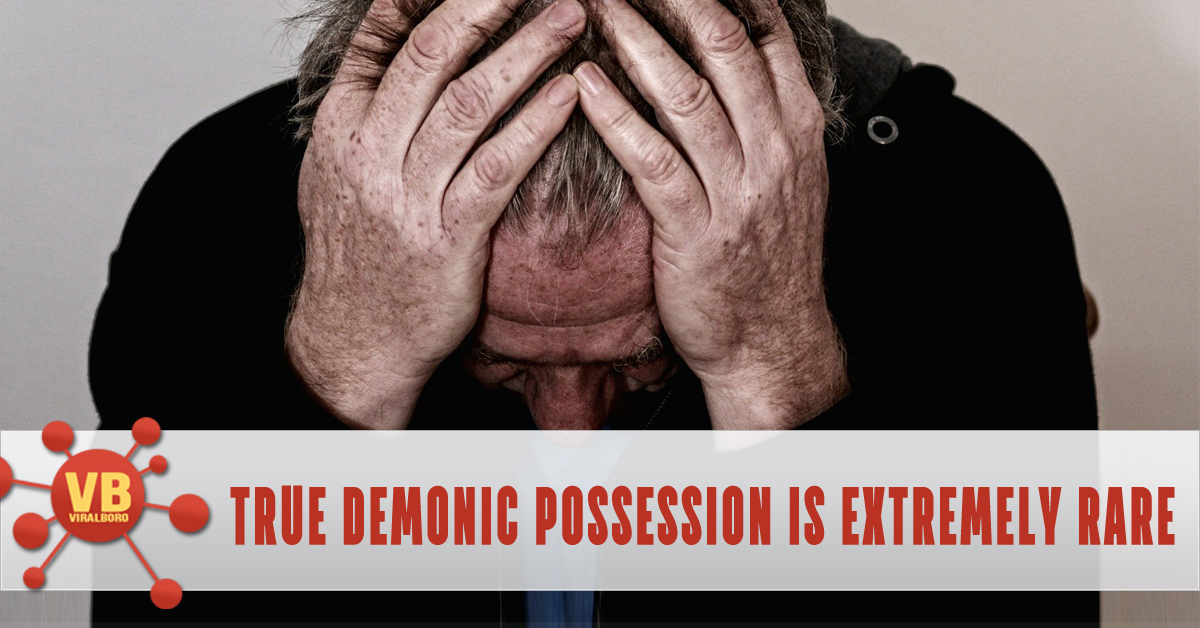True Demonic Possession is Extremely Rare
If you’re ever curious whether you or someone you know is possessed, you may want to take a gander at the article I came across recently, written by The Reverend Dr Beatrice Brandon, called Symptoms of Spiritual Crisis and the Therapeusis of Healing. Apparently, not only do high rank catholic priests still practice exorcism, they started to educate masses about it. My response here is not about religion, nor is it about speculations about paranormal being true. This is an unbiased reflection on an official article written by a representative of English church - Dr Beatrice Brandon.
It is interesting to point out that in her article, Dr Brandon, does not condemn psychiatric approach in dealing with “demonic possessions”, nor does she state that each of them should be exercised by the church representative. It is important to rule out mental illness or cultural demonization before going into exorcism.
She talks about Spiritual crisis, listing them as Spiritual temptation, Spiritual obsession, Spiritual oppression and True demonic possession.
“Spiritual temptation is to be tempted, but not to be sinful: it is the most ordinary every-day type of spiritual pressure and because it is often banal and subtle, it can be surprisingly dangerous. When a person cannot resist temptation, it may result in obsession. Spiritual obsession refers to the person’s thoughts being affected, such as guilt, preoccupation with evil linked with demonic or occult interference. Spiritual oppression is continuous occult or demonic attack such as in dreams, sustained fear and foreboding or a periodical strong compulsion towards evil courses. A client may have been cursed, or think that they have been cursed”.
Dr Brandon states that Hollywood dramatization of demonic possession has created a false promise.
- • In fact, true demonic possession is extremely rare.
- • Most cases of spiritual crises range between spiritual temptation and spiritual oppression.
So what is there to battle possible Spiritual Crisis? Well church’s protocol includes: prayerful support, pastoral care, spiritual counsel and direction.
"Deliverance ministry delivers people suffering from degrees of possession into God’s tender care as part of being restored into a right relationship with Him."
"Christian exorcism could be defined as the rite of casting out evil spirits, based on the example of Christ and the apostles. It is the specific act of binding and releasing, performed on a person who is believed to be possessed by a non-human malevolent spirit."
According to Dr Brandon, exorcisms tend to fall into Minor or Major categories. Minor, lesser exorcism is when authorized priest prays "supplicatory prayers." In a Major exorcism, the exorcist commands the spiritual entity to leave the victim.
"Major or greater exorcism is the imperative exorcistic prayer. It may be used if the exorcist and bishop are convinced beyond moral doubt that the client's body is demonically possessed and the bishop has given his authorization for the exorcism. It is important to note that a demon does not possess the person’s soul." That should be good news if you believe in possession.
Overall, the article makes it clear that Dr Brandon thinks spiritual crisis has been a universal problem for humans for a very long time, and is not necessarily about evil or demonic spirits. Such instances should be instead viewed as an opportunity to use the church communally for life-transforming good. She even goes on to include other religions. "Each faith or belief system offers its own processes, answers and therapeutic responses," before landing on "The prime aim of Christian deliverance ministry is to bring the client into a close relationship with Jesus Christ. Even though most cases do not need deliverance ministry or exorcism, good pastoral care is always required. Usually it is the quality of the normal pastoral response within the context of the local Christian community which people find most appreciate and find helpful."

